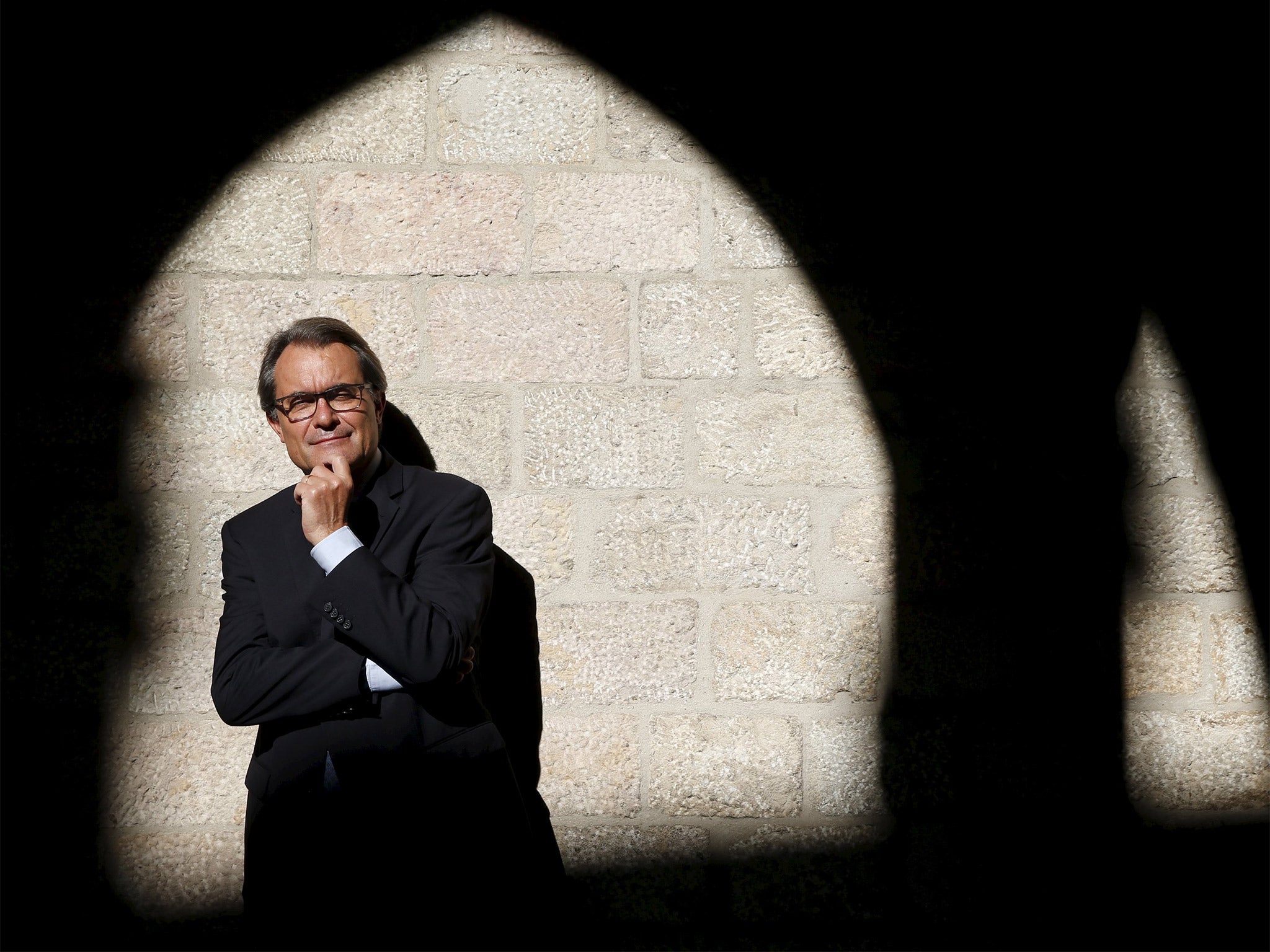Catalan independence: Voters head to polls in 'de facto referendum' on seceding from Spain
The Spanish government and political leaders across Europe have said an independent Catalonia will have no automatic right to join the EU or other institutions

Your support helps us to tell the story
From reproductive rights to climate change to Big Tech, The Independent is on the ground when the story is developing. Whether it's investigating the financials of Elon Musk's pro-Trump PAC or producing our latest documentary, 'The A Word', which shines a light on the American women fighting for reproductive rights, we know how important it is to parse out the facts from the messaging.
At such a critical moment in US history, we need reporters on the ground. Your donation allows us to keep sending journalists to speak to both sides of the story.
The Independent is trusted by Americans across the entire political spectrum. And unlike many other quality news outlets, we choose not to lock Americans out of our reporting and analysis with paywalls. We believe quality journalism should be available to everyone, paid for by those who can afford it.
Your support makes all the difference.Catalans go to the polls on Sunday in local elections that have been styled as a de facto referendum on secession by a coalition of parties who want to see Catalonia become Europe’s newest nation.
Much is stacked against those hoping for independence. Opposition in Europe is so high it was a moment of triumph when, a fortnight ago, an opinion poll in tiny Lithuania showed support for the bid for independence.
The government of Spain and a host of political leaders across Europe have said that an independent Catalonia will have no automatic right to join the European Union or other institutions. Last week, Barack Obama threw his weight behind Spanish unity.
The latest polls are tight, but surveys for leading Spanish newspapers suggest that the Junts pel Si coalition and the pro-secessionist Popular Unity Candidacy will together win as many as 72 seats in the 135-member Catalan parliament.
The Catalan independence movement generally gains support in times of economic downturn – the wealthy region is a net contributor to the Spanish economy. Supporters, some of them fervent, argue that Madrid has curtailed autonomy and rights over the use of the Catalan language.
Artur Mas, the Catalan President who has come around to the independence argument, backed away from the idea of a unilateral declaration of independence and instead called on the Madrid government to hold a binding referendum.
Speaking to Reuters, Mr Mas said that the will for an independent Catalonia was unstoppable. “Now, if the question is ‘will you stop the political process in Catalonia’, the answer is no until we have the certainty that we have a specific date for a binding referendum on independence,” he said.
“If we get a clear and specific democratic mandate on 27 September, things will change because in the end the independence depends on our will.”
The centre-right Spanish Prime Minister Mariano Rajoy and his government are adamant that Catalonia will remain part of the country and have insisted that the Spanish constitution does not allow for regions to secede. A general election, which will probably be held in December, is unlikely to alter that position since most major political parties favour the union.
However, by entering the debate, Catalans know that Mr Rajoy is at least acknowledging the pressure that will follow a win for break-away parties in Sunday’s vote.
At the heart of the issue is any future Catalan state’s membership of the European Union, which Mr Mas and his allies say is automatic. Mr Rajoy has moved to scotch this idea and has persuaded other European leaders, including David Cameron, to say that Catalonia would be forced to “take its place at the back of the queue”, of EU accession countries. Speaking to reporters last week Mr Rajoy said that Catalans would “lose the rights they have as Europeans and Spaniards” if Catalonia became an independent state.
In recent days, business groups and banks have lined up to stress the need for unity, threatening to withdraw from a future independent Catalonia. The Barcelona football club, worried about being ousted from the Spanish football league, has said it is neutral on the matter.
Catalonia facts: Did you know?
* The region was home to the surrealist painter Salvador Dalí, who had a house in Cadaqués.
* The Catalan language is spoken almost as widely as Spanish in the region.
* Catalonia’s capital, Barcelona, came under the control of anti-Francoist anarchists during the 1936-39 Spanish Civil War.
* The poet Federico Garcia Lorca described La Rambla in Barcelona as “the only street in the world which I wish would never end”.
* There is a square named after George Orwell in Barcelona. Homage to Catalonia was his personal account of the Spanish Civil War.
* Construction of Antoni Gaudí’s Sagrada Família in the city began in 1882. The basilica is expected to be completed in 2026.
Join our commenting forum
Join thought-provoking conversations, follow other Independent readers and see their replies
Comments